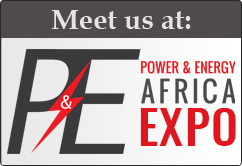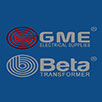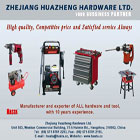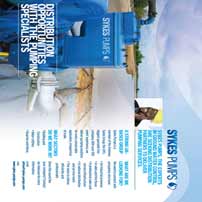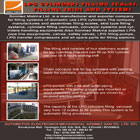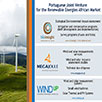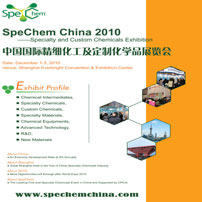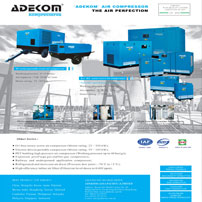

M a r k e t N e w s
The State of Energy in Africa
Posted on : Friday , 25th November 2016
Africa: a continent of vast natural resources is a continent woefully short of electricity. According to Mckinsey Global Institute's February 2015 report "Brighter Africa The growth potential of the Sub-Saharan electricity sector", access to electricity and the ability to consume electricity are two of the most crucial metrics that indicate the degree to which the power sector is supporting national development and the economic growth of a country.
South Africa, the African country with the greatest installed energy, has, since 2007 also felt the effects of the growing energy deficit, resulting in energy supply constraints which had far-reaching financial losses for the country's economy and reported to be in excess of R1.3billion. In recent years South Africa has implemented a Renewable Energy Independent Power Producer Procurement Programme (REIPPPP) solely aimed to target 10,000GWh of electricity.
REIPPP has been key in securing electricity capacity from the private sector. As at August 2016, 44 projects that were approved and rolled out under the REIPPPP are now online, and making a valuable contribution to the current power crisis in South Africa.
Following the incredibly successful roll out of the REIPPPP it appears that other Sub-Saharan African countries are following suit. The IFC's Scaling Solar programme is one such model, a “one stop shop” aiming to make privately funded grid-connected solar projects operational within two years at competitive tariffs. This programme is currently being implemented in Zambia, Senegal, Madagascar and Ethiopia and aims to be adopted throughout Africa notwithstanding concerns regarding the US$0.06 tariff.
Namibia's Electricity Control Board introduced its REFIT program with NamPower signing 14 Power Purchase Agreements with various Independent Power Producers. REFIT was designed to add 70MW to the Namibian embedded generation capacity. At present, two 5MW solar PV farms have been completed and commissioned in Namibia, with NamPower and the Electricity Control Board stating that 11 projects have reached financial close and were on track to be implemented by July 2017.
Uganda, home of one of the most active clean energy markets in Sub-Saharan Africa, launched the GET FiT policy in 2013 together with the World Bank and a group of European member states. GET FiT aims to reduce the barrier to investment in renewable energy, providing developers with a top up to its existing clean energy fund tariff for the first 5 years of operation, as well as providing developers with access to private financing and insurance against off-taker risk.
The Nigerian Government's solution to the power crisis included selling its Government-owned Power Holding Company of Nigeria to the private sector, concluding the first phase of its privatization in November 2013.
Nigeria's estimated available capacity of electricity, being only 4500MW (approximately 10% of South Africa's installed capacity for a country with a population almost 3 times the population of South Africa) meets only one third of its current power demand. It has been reported that private investors in the Nigerian energy sector are threatening to pull their investment due to a failure by the Nigerian Government to abide by and fulfil its contractual obligations in the privatisation process.
Concerns by investors loom over the fact that Government offices, the National Assembly and the military bases have not paid their electricity bills since the privatisation of the sector in 2013. Notwithstanding this controversy and the economic downturn in that jurisdiction, Nigeria is projecting that 2020 it will be able to generate 40,000MW of electricity.
Morocco is currently home to the construction of the world's largest concentrated solar power plant "Noor" which is expected to be operational by 2018, with an intended 580MW of installed capacity. In addition to Noor, Morocco launched its national development plan for LNG in December 2014, with plans to increase gas from around 16% in 2014 to 32% by 2025, this being supplemented by the construction of an onshore LNG terminal in Jorf Lasfar which would allow importations of up to 7 billion cubic meters of gas by 2025.
Zambia and Zimbabwe have faced severe power shortages in recent years due to an under investment and low water levels which have negatively impacted the Kariba Dam hydro power station which produces 24% of Zambia's and 44.5% of Zimbabwe's respective electricity supply. This has furthered discussions on the development of the 2,400MW Batoka Gorge hydro power project which is scheduled to commence in 2018 and is anticipated to cost $4 billion. There are also talks of the development of another hydro power station at Devil's Gorge further upstream on the Zambezi River.
Governments in various African nations are acutely aware of the demand for energy and the consequential impact of the shortfall of energy, the inability to meet electricity demands and to promote national development. In recognising this gap, it is evident from the development initiatives set out above that various African countries are taking steps to implement programs to account for the current shortfall and adverse impact on economic growth.
Notwithstanding the alleged high cost of privately-sourced energy, it seems that the Independent Power Producer programmes have been a driving force in addressing this issue. The traditionally coal-reliant regions are clearly turning to alternative sources of energy and it is evident that the rest of the world (eager to share in the attractive equity returns offered by these IPP initiatives) will be monitoring the progress of all these programmes and the Government-support and guarantee undertakings (or the lack thereof) notwithstanding the perceived political risk and threat of credit downgrades.
If South Africa, as an example, wants to maintain its current momentum from the REIPPPP, it needs to ensure that the threat of political uncertainty does not leave investors seeking viable alternatives, that it seems various African countries might be ready to deliver.
Source : www.engineeringnews.co.za


